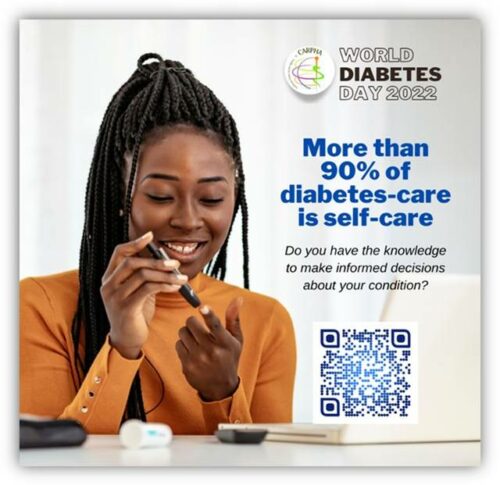
The world stopped on Sunday to observe World Diabetes Day. The disease according to experts is the most preventable killer in the Caribbean.
According to a press statement from Caribbean Public Health Agency (CARPHA) the training of healthcare providers strengthens and standardizes the management of diabetes in primary care settings, which is a cost-effective and results-intensive way of improving good outcomes in diabetes care region-wide.
The Executive Director of CARPHA said in a statement on the observance of World Diabetes Day, that crucial to an effective response to the diabetes epidemic is access to high-quality, integrated, and people-centered primary healthcare services with the appropriate number of healthcare professionals who are well-trained and equipped to care for persons with diabetes.
In the Americas, diabetes was recorded as the fourth leading cause of death and disability in 2019.
According to the IDF Diabetes Atlas, North America and the Caribbean are ranked 4th in the world, with an age-adjusted comparative diabetes prevalence in adults 20-79 years of age of 11.1 %.
Projected prevalence in 2030 and 2045 are 12.3% and 13.0%, respectively1. In 2019, the country in the Americas with the highest age-standardized mortality due to diabetes was Guyana, with 82.6 deaths per 100 000 population.
Several Caribbean countries were in the top ten, including 3rd Trinidad and Tobago and 4th Haiti at 69.6 and 68.2 per 100,000, respectively2 . This year’s observance of World Diabetes Day emphasizes the need for better access to quality diabetes education for health professionals providing care and people living with diabetes.
While the high prevalence of diabetes and other NCDs were thought to exacerbate the impact of COVID19, it showed the need to improve the prevention, diagnosis and management of NCDs. Diabetes: Educate to protect tomorrow is one of the key messages for the 2022 World Diabetes Day. It reminds us that education supports diabetes prevention, early diagnosis, and the reduction of diabetes complications.
Healthcare providers should know how to detect and diagnose diabetes early and provide the best possible advice and care for people living with diabetes.
Access to diabetes education increases the likelihood that healthcare providers will have productive interactions with informed-activated clients empowered to take charge of their health.





0 Comments